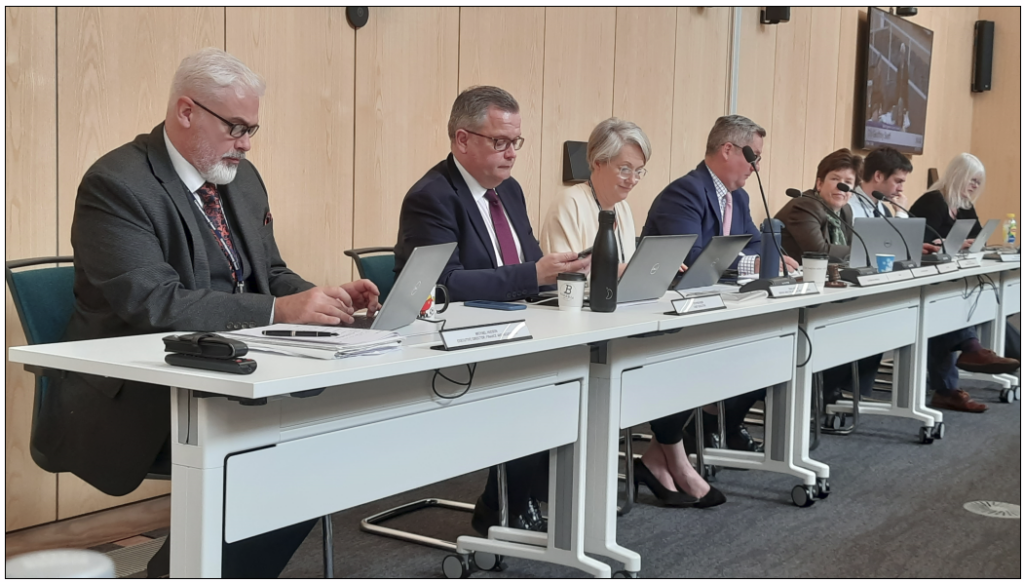
A full council meeting at Alconbury today, with by far the largest share of the time taken up by five motions from councillors.
After the usual introductory items of apologies for absence, minutes, declarations of interest, and Chair’s announcements, the council approves reports on senior manager pay data, the chief officer pay policy statement, and pay gap reporting.
There are then some changes to membership of council committees following more councillors leaving the Conservative group. (They won 28 seats in 2021, they’re now down to 22 with a by-election pending to determine whether they or the Liberal Democrats are the larger group on the council.)
The first of the five motions asks the council to work with Government and local council partners to ensure sustainable funding for the council’s Armed Forces Covenant officer role, seeks a Government review of armed forces accommodation charges, food charges and allowances, and to write to ministers about the current support offered to Afghan refugees and call for spouses and children of Commonwealth veterans to be granted right to remain at the same time as the serving veteran without fees. It passes with no votes against.
The second motion calls for the abolition of the Greater Cambridge Partnership – oddly, proposed by one of the three councillors who signed it into existence in the first place. It makes the slightly under-evidenced assumption that the Government will allow the Partnership to be abandoned but that we still keep the money. It’s all ridiculous electioneering, I speak and vote against it, and it is defeated with eighteen votes in favour and thirty-one votes against.
The third motion is more of the same, calling for the council to ‘resist any attempts made to introduce anymore [sic] new local forms of taxation’. It’s basically a complaint about the Mayor’s use of his right to levy a precept, which he’s using to improve bus services. But that right to levy a precept wasn’t invented locally – it was set down by Government in 2017 for all Mayoral combined authorities with a devolution deal. The motion proposes writing a list of ‘ambitious transformation strategic infrastructure interventions’ and sending it to the Government with a request for the money. Yes, that’ll work. I speak and vote against this nonsense, and so do most councillors, with only sixteen votes in favour, and thirty-two votes against.
The fourth motion notes low turnout in council elections and lack of engagement in politics particularly among young people. It wants the Chief Executive to write to Government asking for a proportional voting system, and the council’s Communities, Social Mobility & Inclusion Committee to work with partners to develop a plan to encourage greater understanding of the role of the different tiers of local government and how we can work better to engage with young people to increase participation in local elections. It passes by thirty-two votes to thirteen.
The final motion calls asks the Chief Executive to write to Government and invite council partners to join in the request to commit to making the benefits and opportunities created by growth accessible to all residents of Cambridgeshire, urgently commit to funding and supporting the delivery of essential infrastructure for growth, establish ambitious targets for affordable housing, and recognise that the Government’s Case for Cambridge vision requires investment in skills, training and education. The motion is universally agreed without a vote.
The Chair of the Fire Authority, Cllr Edna Murphy, reports that Cambridgeshire is now likely the authority with the lowest level of funding per head in the country. She draws attention to the increase in widespread fires and widespread flooding, and the demand on fire services. She also notes the forthcoming retirement of fire chief Chris Strickland.
The meeting closes at 2:23PM.
Papers for the full council meeting are here.
